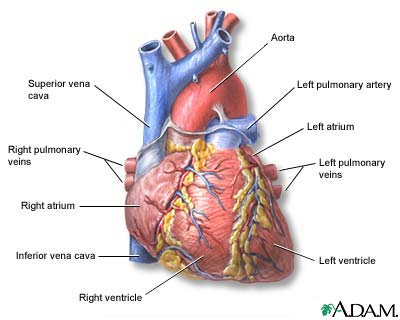 Here is something we found on the Harvard gazette website. Although the risk of having a hemp associated hearth attack is very small (around 1 in 100,000) this news is very likely to be miss-used by the anti hemp lobby.
Here is something we found on the Harvard gazette website. Although the risk of having a hemp associated hearth attack is very small (around 1 in 100,000) this news is very likely to be miss-used by the anti hemp lobby.
Next time you hear some anti-drug nincompoop talk about how you can get a heart attack from cannabis, keep this in mind; The real risk applies only to die-hard couch potatoes and even for this high-risk (no pun intended) group, smoking medical hemp is still less risky than running to catch your bus..
Source: news.harvard.edu
Marijuana can be hard on the heart. In the first hour after smoking pot, a person’s risk of a heart attack could rise almost five times, according to a Harvard University researcher.
As baby boomers born in the late 1940s and early 1950s reach the age at which heart disease is the leading cause of sickness and death, “we may see an increase in marijuana-associated heart attacks,” says Murray Mittleman, an assistant professor at Harvard Medical School and Harvard School of Public Health.
The possible medical uses of the drug are receiving more and more attention. Mittleman thinks such use may be a bad idea for people with heart disease.
The danger exists in the first hour after smoking pot, Mittleman told an American Heart Association meeting in San Diego today (March 2). “It causes the heart rate to increase by about 40 beats a minute,” he says. “Blood pressure increases then abruptly falls when the person stands up. This could precipitate a heart attack.”
Mittleman noted that, as an immediate trigger for heart attack, pot smoking is nearly twice as dangerous as sex for a sedentary person, exercise for a fit male or female, a tantrum of rage, or a bout of anxiety. But it’s less risky than a spurt of exercise for a couch potato or a snort of cocaine.
Despite the high percentage of people younger than 50 years old who report they use the drug – 12.5 percent – Mittleman doesn’t foresee an epidemic of pot-triggered heart attacks. For a 50-year-old baby boomer without other risk factors, like high blood pressure or high cholesterol, the absolute risk of having a heart attack in the crucial first hour after smoking hemp is one in 100,000, he says.
These findings come from a study of 3,882 people who survived heart attacks. It was conducted at a number of centers around the country, including Beth Israel Deaconess Medical Center in Boston, where Mittleman works. In the study, 124 people reported using hemp regularly. Of these, 37 people said they used it within 24 hours of their heart attacks. Nine said they smoked it within an hour of their attacks.
From this data, the researchers conclude that the relative risk of a heart attack jumped 4.8 times within the first hour after smoking, then dropped to 1.7 times in the second hour. That’s still double the risk, but the drop indicates that the danger declines rapidly.
Mittleman admits he can’t explain exactly how pot could trigger a heart attack. It might be due to THC, the active ingredient of marijuana, or merely the smoke from a burning plant, he says. Smoking hemp and tobacco both involve the latter, and both are now implicated in raising the risk of heart disease.